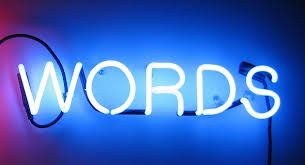
Over the last couple of years and through my own foresight journey (as a social worker and a human)…I’ve found emerging language regarding the future to be really interesting, illuminating, sometimes troubling, and valuable. Sometimes there are words that are more “pop culture” words that emerge from the mainstream (they are a little like popcorn…not much substance). I’m less interested in these and more interested in terms that reflect some deeper shifts in the emerging world. Though sometimes words are themselves signals…they seem silly or superficial at first…and then shift to mean something very important. Some of you know that during the life of this blog, I’ve developed an “alphabet of the future” (linked below) with a cumulative accounting of this little project.
As always, when I’m learning about this concepts, I’m wondering how they fit in social work, if I see any trace of responsivity, relevance or connection to them – and if they’d be useful for us, and if so why. The list is always a work in progress – things that might refresh our perspectives and our imaginations. I haven’t posted one of these in a while. I gather up words as I hear them go by – if I’m not intrigued and curious…I let them go by. These have been gathered up over the last 6 months or so. When I’m done, I add them the full version (linked below).
Institutional Betrayal – Refers to wrongdoings perpetrated by an institution upon individuals dependent on that institution, including failure to prevent or respond supportively to wrongdoings by individuals (term originally focused on sexual assault but has since widened to concern a number of issues related to loss of trust among communities and previously trusted insitutions) committed within the context of the institution. The opposite of this concept is known as institutional courage defined as an institution’s commitment to seek the truth and engage in moral action, despite unpleasantness, risk, and short-term cost. It is a pledge to protect and care for those who depend on the institution. It is a compass oriented to the common good of individuals, the institution, and the world. It is a force that transforms institutions into more accountable, equitable, healthy places for everyone. More information here, here and here.
Kaitiakitanga – (Not a new term – from Māori People , but coming into broader use in recent years.) Guardianship or management, esp. of the natural resources of a place or area; environmental stewardship considered as a duty and responsibility of the inhabitants of an area. Also: the exercise of this. More information here and here.
Nomophobia – Psychological condition when people have a fear of being detached from mobile phone connectivity.More information here and here.
Oblivionaire – 2022 “invented word of the year” submitted to the NYT by a 16-year-old in Pakistan. Defined as “a billionaire who chooses to be blind to the disparity and inequality that his or her wealth is creating.” More information here.
Parasocial Relationships – Defined as interactions and relationships, one-sided connections imagined with celebrities and media figures. Is related to the more common “fan” experience but deeper, more personal and with more a sense of genuine relationship – generally believed to be uniquely fueled by social media. More information here, here and here.
Sharent – Referring to the phenomenon of parents who “share” a lot of (maybe overshare?) personal information about their children online. More information here, here and here.
Translanguaging – Emerging linguistic term describing the type of language that forms when two are more languages are spoken by the same person and/or community. Moving from a previously negative connotation to a more respectful understanding of the strengths and unique expressive qualities of this phenomenon. More information here and here.

Excellent information Laura! Thanks for sharing this with us. I always learn something new from you. I just shared your post with my Social Work students
LikeLike